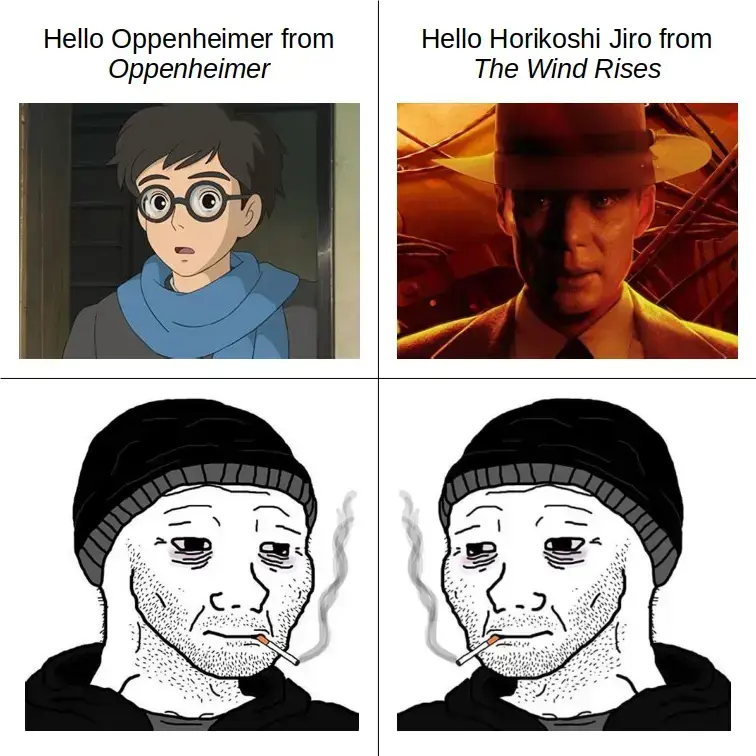Context: two people who developed extremely destructive weapons, were horrified by their use, and had biographical films made about them.
Jiro Horikoshi was a Japanese aviation engineer who designed the dreaded Mitsubishi A6M Rei-sen (‘Zero’ to allied pilots). J Robert Oppenheimer was a US physicist who led the development of the nuclear bomb.
Note that The Wind Rises is only partly based on Horikoshi’s life, and also borrows from Hori Tatsuo’s semi-autobiographical novel The Wind has Risen (itself named after a French poem) and director Hayao Miyazaki’s childhood experiences of WW2.



Ehh, the A6M wasn’t an amazing fighter and the Japanese had other comparable models. It was superior against early war fighters and fighter tactics but even US fighter pilots in f4f’s outclassed them when their tactics were adjusted.
He didn’t really cause much in terms of suffering which wouldn’t have been caused by any other competent fighter pilot designer.
It’s a cool plane, though.
Oppenheimer probably saved a million or so lives by enabling the US to win the war against Japan without an amphibious invasion of the home islands.
That last statement is disputed - the Soviet declaration of war probably had a greater effect on Japan’s surrender. In any case, Oppenheimer was definitely horrified by the atomic bombings.
Yeah, maybe, it’s debatable. What we do know is that both events very much did play into the war ending early
That last bit is incorrect and basically propaganda. If you care to learn why, this video is amazing (but long) https://youtu.be/RCRTgtpC-Go
Here is an alternative Piped link(s): https://piped.video/RCRTgtpC-Go
Piped is a privacy-respecting open-source alternative frontend to YouTube.
I’m open-source, check me out at GitHub.
I’m legitimately not going to watch a propaganda video, but going by the information the US had at the time and what the Japanese was saying and period official estimates of US and Japanese military casualties and Japanese civilian casualties, it saved lives. That’s just factual reality.
I am aware that there’s some people who try to revise history and reinvent the Japanese Empire into a state of almost being ready to surrender anyways, but using information not available to the Allies at the time is operating with massive benefit of hindsight, and it isn’t true, anyways. Both the Soviet invasion and the bomb prevented the invasion and saved lives. I’m sorry, but that’s just the truth.
But it’s not the truth, and there are so many first hand accounts of US officials saying exactly otherwise. Stay closed minded if you like, but you are wrong.
It is the truth. You can real literal official declassified documents from the time period saying as much. You are wrong.